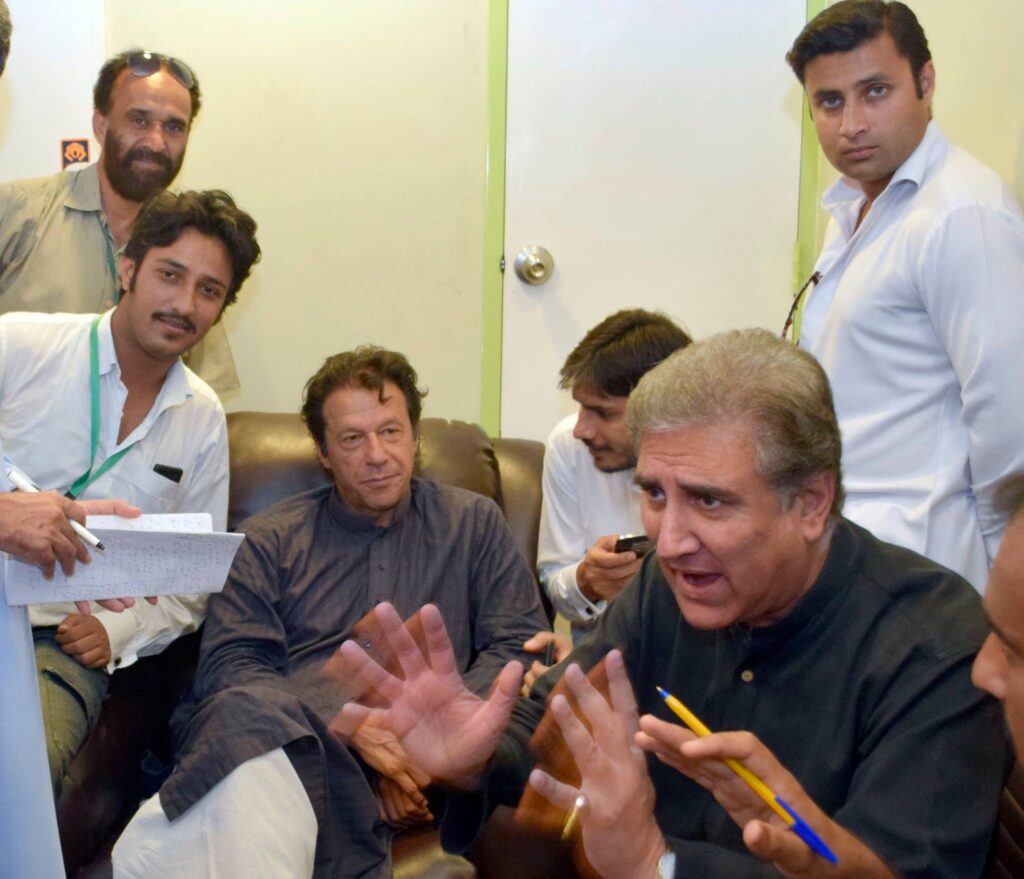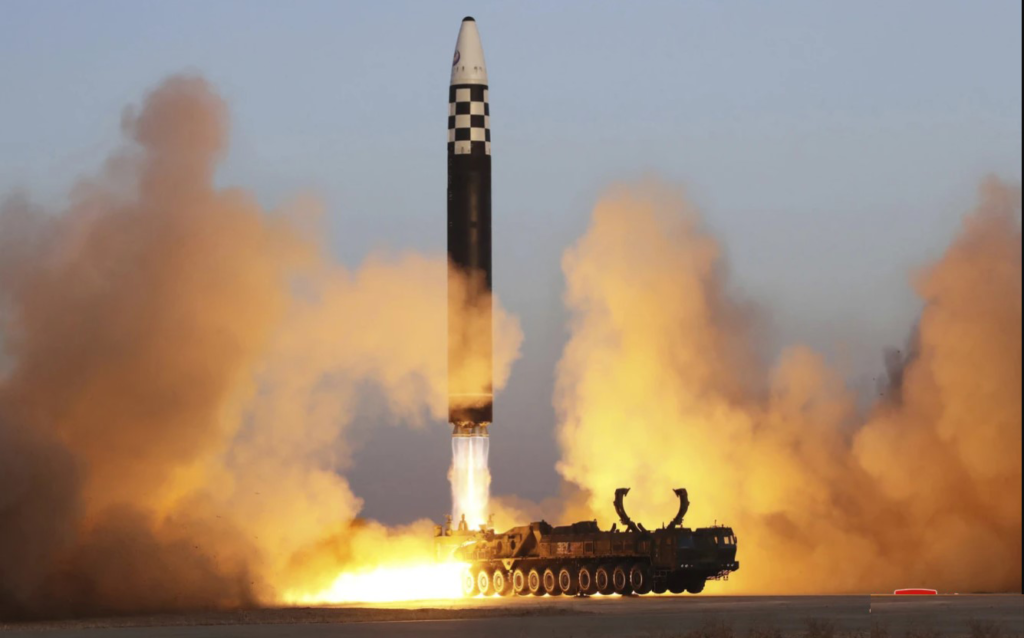
Controversial Convictions-Unanimous Criticism Over Hasty Verdicts
In an astounding turn of events, however, just as the political landscape was upended and given a perilous nudge by an independent judiciary in Pakistan at least two senior mainstream politicians will end up literally behind bars-and they could not be more unlikely bedfellows. Both Imran Khan who served as Prime Minister of Pakistan from 2018 till his ouster. In this regard, their convictions were made based on their alleged act of involvement in a case concerning the leak of state secrets. Interestingly enough, while the members of the legal profession and political commentators present divergent views for their criticism, they form a united front in condemnation of this verdict. The issue they all share in common is their perception that the charges against Khan and Qureshi were bereft of merit when it was inconceivable in the wake of a scandal-tainted controversy within which an unfathomable level of indecency underpinned the intolerable ill-treatment. This has led to nationwide arguments on conformity to due process and consequences of the form that could see the scrapping of democracy in the country.
Right to Fair Trial Violated
Lawyer Rida Hosain speaks about a critical constitutional issue, pointing out that fundamental freedom is bluntly violated. According to her, this fundamental right is guaranteed by the Constitution on him being not be discriminated against. however, Hosain strongly condemns the denial to Imran Khan and Shah Mahmood Qureshi of their right to retain lawyers as they desire for him to argue that this entire proceeding is nothing but a farce because procedurally on this basis alone. The sharp give of criticism throws itself toward confronting the unsound theoretical foundation for drawing harsh penalties, denoting certain objects under the Official Secret act. Notably, the judicial analysis of Hosain is one more detail strengthening the accumulating disquiet in terms of the trial that stresses perfect scrutinizing to provide justice according to constitutional viability.
Transparency Concerns
Lawyer Basil Nabi Malik rendered some sort of a critical element into the discursive process by provoking doubt about how the trial took place as well as its velocity. Emphasizing that the public should pay attention to issues of transparency in court trials by this action he marks out a critical legal principle which can easily be misused – or – for example, violated because there are times when you need not to disclose some details at all. Pointing at the appointment of state counsels which Malik aims for precisely, especially now with the air is filled with accusations of victimization against Imran Khan and Shah Mahmood Qureshi. His criticism is consistent with the broad theme that each individual should be given one’s fair chance to speak and this philosophy is at the core of the legal system yet compromised in his view. Malik draws attention to the haste in making this decision and therefore introduces doubts concerning the authenticity of the judiciary making one lose confidence in law-based crime resolution.

Questioning the Basis of the Sentence
Lawyer Abdul Moiz Jaferii goes to the nub of the issue, arguing against the very basis of imposition in connection with an observed sentence. He holds up an important matter by highlighting the need to prove intent of espionage, thus downplaying veracity bordering on a greatly reduced likelihood. However, Jaferii argues for a more democratic approach that recommends the punishment should be left with voters and putting much into consideration before one is put under arraign stars because it has been seen in most cases those in power have misused laws. Skepticism touches in the application of paragraphs personally to situations and on what is done under the Official Secrets Act, but how severe punishment was derived from it. Indeed, Jaferii’s subtle reproach demonstrates the careful balance between the legality of accountability and saving democratic values; therefore, thoughtful and rational evaluation of charges needs to be brought forward as well.
Integrity and Impartiality in Doubt: Mirza Moiz Baig’s Concerns
Lawyer Mirza Moiz Baig further contributes another insightful angle in the lingering conversation which resonates from a deeply entrenched position of mistrust at the status quo and its ability to handle issues as sensitive as that under discussion. Baig outlines two pivotal issues of the trial – its mysterious origins and its super quick conclusion, which inevitably are questioned within the sphere of guaranteeing fair trial and due process. He highlights the importance of Imran Khan and Shah Mehmood Qureshi’s denial of being represented by lawyers of their choice which forms one significant development that makes other injustices commitment towards the accused look even more prominent. Baig’s thoughts shed light on larger derives of this procedural incompleteness, focusing attention on the importance to adhere with fundamental values for pursuing justice and mandating this legal framework.
Social Media Response and Democracy Concerns
The digital realm is awash in leaning around the court verdict of ‘how dissatisfied’ we all are, so much that there now sits a menacing conundrum on what this means for the already delicate democracy. Talk show hosts like Mr Baqir Sajjad Syed and Shahzeb Khanzada, a senior journalist representing the media are strongly critical of the judgment. Their criticism pivots on the concept of due process and the need to guarantee its honest enactment, in a process essential for any legal proceeding of their magnitude. However, as the platform is a virtual public forum, it provides citizens with space to conduct open mass debates that remind us of the wider ramifications of these legal changes and highlight a public demand for appropriate accountability grounded in democratic principles.
Toshakhana Case Adds to Criticism
Imran Khan and his party face their worst-ever legal troubles in a matter of mere weeks as the pair is dealt with one forty-four-year jail term about Toshakhana. This progress attracts sharp censure from legal rivals and journalists who perceive the forthcoming court proceeding with a severe eye. Looking at this group of experts and media representatives, we note a common perception of the verdict as an inevitable one. The second point though, is the continuous convictions which only further strengthen these concerns about the credibility of these judgments and seemingly make haste a greater cause for concern in their delivery. Along with the unraveling of this legal story, concerns regarding due process, openness, and larger consequences for democracy per se emerge into the crosshairs of public interest.
Final Verdict and Its Implications
A touch of seriousness in tone comes from Basil Nabi Malik, the legal expert, who says that several back-to-back convictions mean that there is a deadline of meeting and coming. His skepticism encompasses, at the same time, the judgment credibility; that fact seems a paradoxical one because this series of legal actions might still turn out to be politically empowering Imran Khan as general elections will soon take place. On the other hand, journalist Shahzeb Jillani and anchor Arifa Noor harshly attack these trials listing them as a burlesque of the judicature. Their sharp commentary further points out the seriousness of the situation as it must be disturbing to all involved with integrity about the legality of such proceedings. Furthermore, Rida Hosain, a law practitioner contributes to the larger meaning of fairness in society by highlighting people’s lack of trust in justice after watching how these trials roll out based on Dr. Ebrahim notes what has is being done does not follow the fundamental rights and that some focus should be put into fair trial principles.
A Pattern of Political Victimization?
Using the metaphor, Zarrar Khuhro discovers himself condemning the political visionaries. He cleverly points out a visible plan to break the Pakistan Tehreek-e-Insaf (PTI), calling upon his parallel attempts made by other previous governments who had almost the same problems. In negating these historical atrocities that Khuhro addresses, the urgency to learn from this past misstep cannot be overemphasized as avoiding such repetition is critical. In a more cautious language, he suggests that the yields of such shortcomings and its identifying weaknesses for judgments can bounce back if it cannot hold in any case. However, the insights by Khuhoro bring to light the wider reach of consequences especially the legal and political disorder that threatens to move into other spheres of life for instance crippling democracy among others, and thus calls on us with sternness in caution while dealing with these matters.
Read More: UN Urged to Protect Islamic Heritage – Rising Tensions in India Spark Plea from Pakistan


